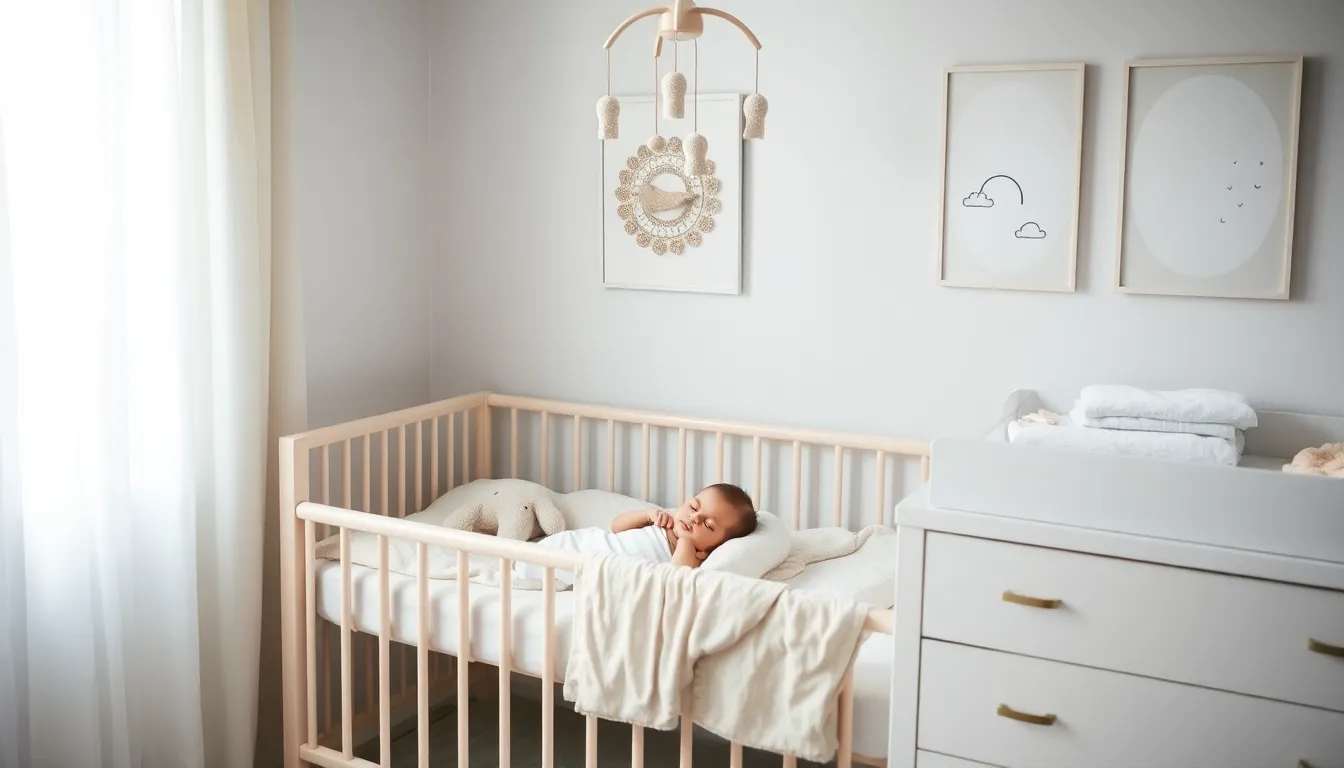So, you have a 3-month-old, and you’re wondering how much sleep they should be getting, right? You’re not alone. It’s like trying to solve a Rubik’s cube blindfolded. Every parent has been there, guessing whether their little one is a sleepyhead or a nocturnal creature. In this guide, we’ll jump into the wonderful world of infant sleep patterns, demystifying exactly how long a 3-month-old should be snoozing. Spoiler alert: it’s more than you think.
Table of Contents
ToggleUnderstanding Infant Sleep Patterns

At three months old, infants are beginning to explore a more structured sleep schedule. But, it’s important to note that they aren’t sleeping like adults just yet. Infants require a unique cycle that involves more frequent awakenings, which can leave parents feeling a bit drowsy themselves.
Sleep for a 3-month-old typically occurs in shorter bursts, lasting anywhere from 30 minutes to 4 hours. This is due to their still-developing circadian rhythms and reliance on parental cues for sleep. Unlike adults, who often cycle between light and deep sleep, infants spend a significant amount of time in REM sleep, which helps with their brain development. Understanding these patterns is crucial for setting realistic expectations about your baby’s sleep.
Average Sleep Duration for 3 Month Olds
Most 3-month-olds should aim for about 14 to 17 hours of sleep in a 24-hour period. Sleep patterns may include longer stretches at night paired with several naps throughout the day.
Factors Influencing Sleep Duration
Various factors can impact how long a 3-month-old sleeps.
- Feeding Schedule: Whether breastfeeding or formula feeding can make a difference in sleep duration. Some babies might wake more often to feed, while others might adjust to longer stretches.
- Growth Spurts: Growth spurts often lead to increased sleepiness, as babies need more rest during these critical developmental phases.
- Environmental Factors: Noise, light, and temperature can all significantly affect how well a baby sleeps.
Developmental Milestones at 3 Months
Around three months, babies are experiencing exciting developmental changes, including better vision and the ability to lift their heads. These milestones can both positively and negatively affect sleep. While many babies may become more alert and engaged, this newfound awareness can lead to more wakeful periods.
Sleep Environment Considerations
Creating an ideal sleep environment can significantly enhance a 3-month-old’s sleeping quality.
Establishing A Sleep Routine
A sleep routine is vital. It signals to your baby that it’s time to wind down. This doesn’t have to be elaborate. A simple routine might include a warm bath, soft music, or reading a gentle story.
Besides, consider the following when preparing the sleep environment:
- Room Temperature: Aim for a comfortable temperature, ideally between 68°F and 72°F.
- Lighting: Use blackout curtains to keep the room dark during naps and at night.
- Safety: Follow safe sleep guidelines by placing your baby on their back and using a firm mattress devoid of pillows and toys.
Tips for Encouraging Healthy Sleep Habits
Even with the best sleep environment, parents often wonder, “How can I make my baby sleep better?” Here are some helpful tips:
Signs of Sleep Readiness in Infants
Learning the signs that your baby is ready for sleep can help you establish more predictable sleep patterns. Look for signs like:
- Yawning: The classic cue that it’s time to shut down.
- Rubbing Eyes: This is an indication they’re feeling sleepy.
- Decreased Activity: If they suddenly become less active and more fussy, that could mean they need some rest.
When you notice these signs, it’s a perfect time to begin your sleep routine. Paying attention to these moments can help your baby fall asleep more easily and stay asleep longer.
When To Consult A Pediatrician
If your 3-month-old is consistently sleeping less than 12 hours or more than 19 hours a day, it may be time to consult a pediatrician. Sleep is vital to a baby’s health, and excessive sleepiness or high levels of wakefulness may signal underlying issues.
Also, if parents observe persistent difficulty in getting their baby to sleep or extreme fussiness, discussing these concerns with a healthcare provider can help pinpoint potential problems and provide tailored solutions.








